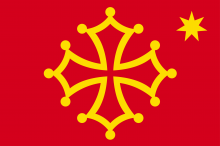She knew that her system couldn’t have lasted forever, but it was almost crippled how quickly it ended up crumbling.
Occitania decided to mint new money. The Euro was now worthless and citizens were told to start community bonfires to burn their paper money and to leave to coins in the ashes. Anyone with contraband currency found in their home would be arrested for enemy sympathies.
She looked through her bedroom window at the pyre below and thought of all of the Euros in her own home, the fact that she wouldn’t be able to help her neighbors any more since none of them had a job that would pay in cathars, the new currency. She looked at the flames jumping higher as people dumped in more Euros and caught glimpses of glinting coins at the bottom. Her eyes went in and out of focus as she stared at the flames, her resolve hardening to make her way accros the border to France. Her neighbors who were fellow immigrants had all already done so or decided that they would stay. She had only hesitated this long out of first disbelief, and, then, the memory of her father. Separating from the last place he had been alive felt like too drastic of an action, but as she stared into the flames and sparking embers below her window, she knew she would have to leave.
She went to bed with the flames dancing on her eyelids, a strange green relief against the black of her closed eyes.
✦✦✦
The people around her were eerily calm as the arrows continued to fall. Several were hit and she watched the flames consume their white gowns, though they continued to stare serenely, all towards the same point. She watched in horror as the flames consumed the fabric and their hair. Then, in order to look at something else, anything else, she followed their gaze to the center of the crowd of white-gowned people. The bright figure was their again and she could feel a heat go through her. She took a step forward, but instead of becoming clearer, the figure seemed to blur.
✦✦✦
She rubbed her eyes as she awoke, slowly remembering what she had resolved herself to do. She packed up everything she needed in a backpack, nestling her shortwave radio in a sweater to make sure it wouldn’t be damaged and she locked the door to her father’s home for the last time.
Sources
Bertran de Born “Be∙m platz lo gais temps de pascor” (45 in Goldin); Felip Hammel lecture on calendrettas; Fabrice Chambon lecture on Cathars at Montségur; Léglu “Vernacular poems and Inquisitors in Languedoc and Champagne, ca. 1242-1249”
Statement of Intent/Methodology
In thinking about “Occitania” I was very much interested in the various perspectives our lecturers had on the region. Some of them seemed to have an academic interest, others a preservationist interest; some seemed like separatists, others like it they almost wanted to return to the past. This got me thinking about what I perceived as micro-nationalism and the ways in which such thoughts have succeeded, partially succeeded, or failed in the past. I also thought about the type of mythos many of our lecturers seem to have created about their language and region, a mythos that valorises them, but which subsequently demonizes other parties.
I am genuinely interested in preserving languages and cultures, but, often, I find that the actualization of this preservation leads to as many ills as gains. I decided to write a short story about some form of actualization of Occitania in this vein. I pulled from knowledge I have of secessionist movements such as the Biafran War of the 1960s and nationalist movements such as those of WWII in Europe. I wanted to explore what this fracturing and apparent choosing of camps would look like for an immigrant who has no stake in the outcome other than possibly losing the quality of life they had anticipated having in what was once France.
It is interesting to me how sometimes, in order to negate the loss of power oppressed groups have felt in the past, they then use newly-gained power to push down a completely separate group. To this end, I made comparisons between my main character (who is unnamed so that she may be from essentially anywhere but France or Occitania) and the Cathars at Montségur and ended the piece with a citation from Bertran de Born which exalts in the pain and suffering of others. I made a comparison between my main character’s boss going to a calendretta and the Dona Sancta in Léglu which has a young boy being saved from the Cathars – the Cathars in this case being the French. I chose the name of the piece to be “Calendretta” because I wanted to highlight the “immersion experience” of my main character in Occitan and the upheaval that a loss of something that seems so integral as language would bring.

